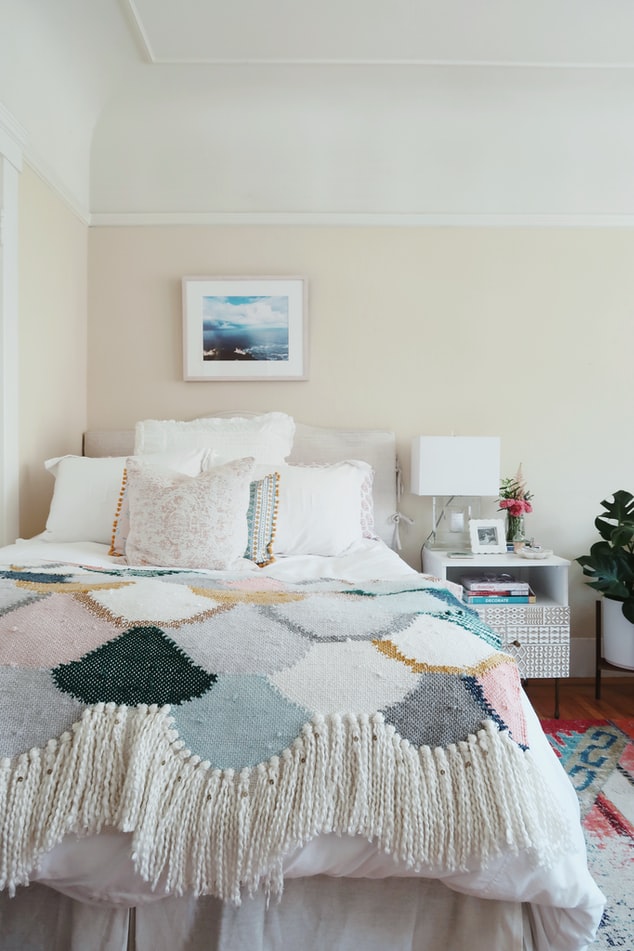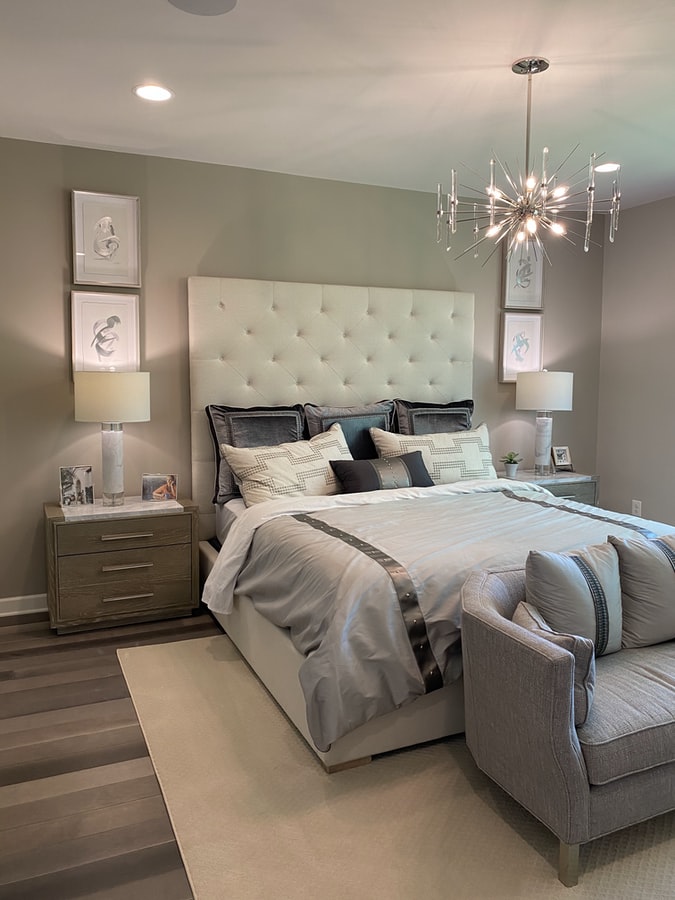Make your bedroom the perfect place to sleep and enjoy a good night's sleep. Here's how!
 Photos by: Unsplash
Photos by: Unsplash
Most people spend about a third of their lives sleeping. This means that you spend roughly a third of your life in your bedroom. But have you ever thought about how healthy your bedroom is? If you are having trouble getting enough rest or waking up tired, sore, and grumpy, it may be time to give your dormitory a health check-up.
Why a healthy bedroom is important
Getting enough sleep is critical to your physical and emotional wellbeing. Several external factors can affect how much sleep you get, including stress, your diet, and the medications you take. However, your sleeping environment also affects the quality of your sleep. Everything from room temperature to the amount of light entering the comfort and cleanliness of your mattress can affect your sleeping habits. Take, for example, the influence of light on sleep. Your internal clock, also known as your circadian rhythm, is largely controlled by your exposure. The absorption of light by our eyes triggers the natural waking response, while darkness can induce drowsiness. For this reason, doctors and sleep experts warn against using electronic devices before going to bed or when waking up at night: blue light, as emitted by electronics, particularly disrupts the circadian rhythm and can keep you awake. Getting rid of the TV in your bedroom, putting away your devices before bed, and resisting the temptation to scroll Instagram when you can't sleep, however, is just one step towards a healthier bedroom.
Create a healthy sanctuary
How can you invite your bedroom to sleep? Here's how to create a healthy sleep center from your mattress to your decor.

Your mattress
If you've slept on your mattress for more than seven years, it's time to buy a new one. Older mattresses are not only less supportive and cause pain and discomfort. You might also be surprised (or horrified) at what's hiding under the covers. Dust mites (and their droppings), bacteria, flakes of skin, dust and dried sweat hide in your mattress, which can cause allergies and affect your breathing at night. When shopping for a new bed, don't overlook the organic mattresses. Made from certified organic materials such as latex, cotton and wool, these mattresses offer the same comfort and support as a conventional mattress without the harsh chemicals that can cause allergic reactions or diseases. For example, organic latex mattresses are naturally resistant to dust mites and microbes and make it easier for you to breathe.
Your bedding
Be honest … when was the last time you washed your sheets? Ideally, you should wash your bedding every 1-2 weeks and other bedding (comforters, blankets, etc.) monthly. This helps keep dust mites and bacteria at bay, and it just feels better to sleep on clean sheets. Don't forget to wash your pillows occasionally too. Choosing the right bedding can also affect your sleep hygiene. If your sheets and blankets are scratchy or uncomfortable, you can stay up at night. Invest in the best quality bedding and linens that you can afford. Choose organic cotton or linen, which are naturally hypoallergenic and will help you regulate your temperature better while you sleep.

Sleeping environment
Speaking of temperature, the ideal temperature for sleep is 65 degrees. If necessary, use a small fan to keep your room cool. A fan can also provide white noise to help you sleep. A dark room is also important for a sound sleep. Put blackout curtains to block street lights and traffic. If you are concerned about safety when you wake up at night, place a small, dim touch light next to your bed. Again, you want to avoid bright light in the middle of the night. Therefore, keep a dim light in the bathroom so you don't turn on bright ceiling lights when you use the bathroom at midnight.
clean your room
Research has found that a clean, uncluttered space is better for sleeping than one where you have to remove books, clothes, and other trash to make room for rest. In fact, the prevalence of insomnia among those diagnosed as Horters was much higher than average. A crowded room can affect your sleep in a number of ways. For starters, skipping regular dusting and vacuuming can increase the prevalence of dust and allergens and cause nasty allergic reactions. But on a psychological level, a messy room can increase anxiety and make you feel insecure and worried about bedtime. Too much chaos can also be a reminder of things you haven't done yet (like the clothes covering the exercise equipment) that keep you awake with feelings of guilt or overwhelm.
The solution? Reorganize and clean up. Remove items that don't belong in your bedroom, clean up the clutter, and create a clean, tidy, and organized space. Not only will you sleep better, but you'll find things you need, when you need them, and feel more in control of your life overall. And that can ultimately help you get a good rest.




